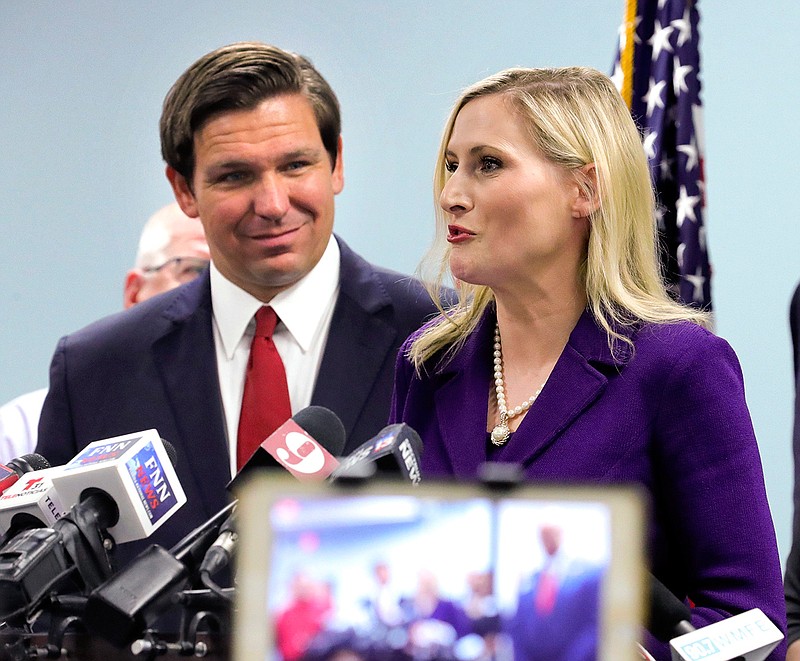ORLANDO, Fla. - Gov. Ron DeSantis gave Florida's 67 elections supervisors their No. 1 priority for 2020 on Wednesday.
DeSantis announced that Florida would become the 29th state to join the Electronic Registration Information Center, or ERIC, a nonprofit compact that allows states to share encrypted voter registration data.
The multi-state system makes it easier to track voter registrations across state lines, clean up voter polls of deceased voters, and - possibly most importantly - reach out via mail to every eligible but unregistered voter in Florida, a number that DeSantis estimated at between 4 million and 5 million potential voters.
"It makes the most sense," DeSantis said at the Orange County elections office in Orlando. "Especially given the fact that we have a lot of people moving into the state. We're very dynamic state in terms of our population."
ERIC would allow supervisors to match duplicate registrations for people who have moved to Florida but remain registered in another state.
The vast majority of people with dual registrations aren't breaking the law or committing fraud, DeSantis said. But it does create confusion when attempting to keep voter rolls accurate.
"If you move from Michigan, no one calls their supervisor and says, 'Hey, I'm leaving, take me off the rolls.' They just move," he said. "And so most of the people who are registered in two places don't ever intend to and will not vote in both places. So I didn't want to be a situation where they didn't call where they're leaving and somehow they would get dinged here."
ERIC would also help better identify voters who have died via Social Security lists.
"Obviously when people pass away, we wish them all the best in the world that lies ahead, but we don't want them still involved in politics," DeSantis said.
DeSantis, who was joined by Florida Secretary of State Laurel Lee and Florida State Association of Supervisors of Elections President Tammy Jones, said the Legislature still needed to approved the $1.3 million cost of mailing postcards to all eligible but unregistered voters, something required by ERIC in order to join in time for the 2020 general election.
But, Okaloosa supervisor Paul Lux said afterward, ERIC requires each voter be notified just once - so that $1.3 million is a one-time cost in order to reach every such person in Florida the first election cycle. After that, the state would only have to reach out to new potential voters who had moved into the state since the previous election.
The decision comes a year after then-Gov. Rick Scott signed a bill making the state eligible to join ERIC, and Scott and DeSantis had been criticized for not joining the compact sooner.
But supervisors, many of whom were at the Orange elections office for the announcement, said they were thrilled about the announcement - which they did not know was coming Wednesday morning.
"For our association, which was meeting this morning to go over our legislative priorities, this was our No. 1 priority to get the Legislature to do," said Orange supervisor Bill Cowles. "And we just crossed that off our list."

